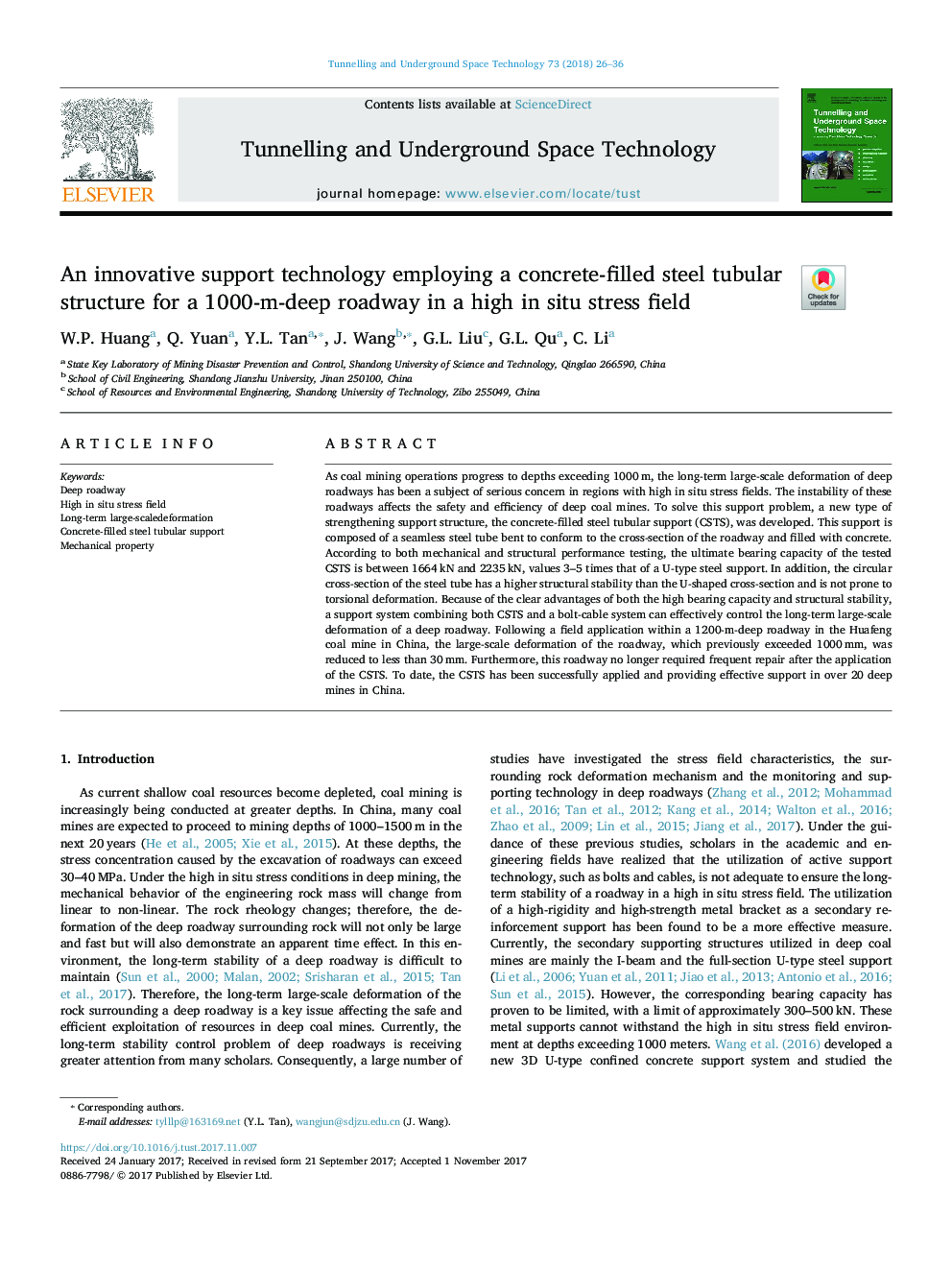| Article ID | Journal | Published Year | Pages | File Type |
|---|---|---|---|---|
| 6782663 | Tunnelling and Underground Space Technology | 2018 | 11 Pages |
Abstract
As coal mining operations progress to depths exceeding 1000â¯m, the long-term large-scale deformation of deep roadways has been a subject of serious concern in regions with high in situ stress fields. The instability of these roadways affects the safety and efficiency of deep coal mines. To solve this support problem, a new type of strengthening support structure, the concrete-filled steel tubular support (CSTS), was developed. This support is composed of a seamless steel tube bent to conform to the cross-section of the roadway and filled with concrete. According to both mechanical and structural performance testing, the ultimate bearing capacity of the tested CSTS is between 1664â¯kN and 2235â¯kN, values 3-5 times that of a U-type steel support. In addition, the circular cross-section of the steel tube has a higher structural stability than the U-shaped cross-section and is not prone to torsional deformation. Because of the clear advantages of both the high bearing capacity and structural stability, a support system combining both CSTS and a bolt-cable system can effectively control the long-term large-scale deformation of a deep roadway. Following a field application within a 1200-m-deep roadway in the Huafeng coal mine in China, the large-scale deformation of the roadway, which previously exceeded 1000â¯mm, was reduced to less than 30â¯mm. Furthermore, this roadway no longer required frequent repair after the application of the CSTS. To date, the CSTS has been successfully applied and providing effective support in over 20 deep mines in China.
Keywords
Related Topics
Physical Sciences and Engineering
Earth and Planetary Sciences
Geotechnical Engineering and Engineering Geology
Authors
W.P. Huang, Q. Yuan, Y.L. Tan, J. Wang, G.L. Liu, G.L. Qu, C. Li,
